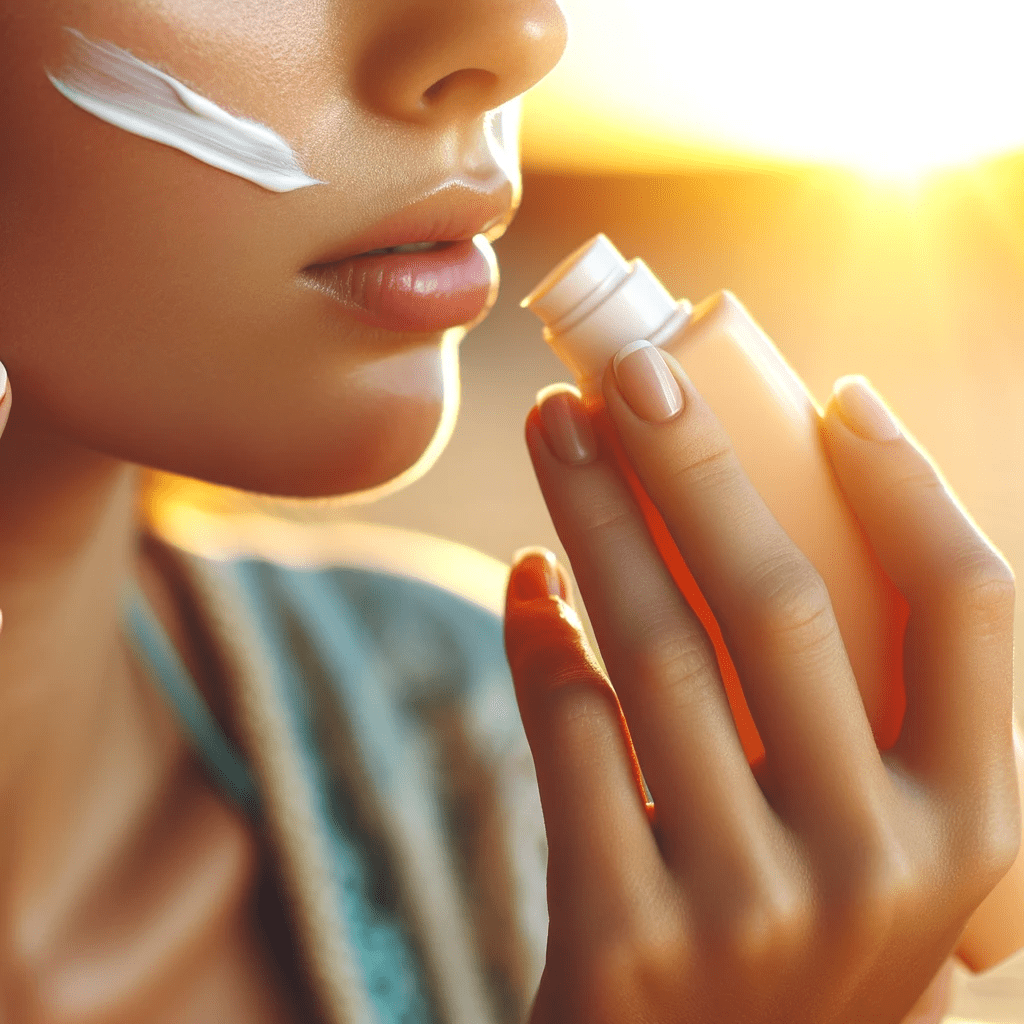Definition
Sunscreen is a formulation applied to the skin to shield it from the sun’s damaging ultraviolet rays. It lowers the chances of getting sunburned and suffering skin harm and long-term skin health issues like cancer.
Expanded Explanation
Sunscreens block or absorb UV radiation, preventing sunburn and skin damage. Chemical types absorb UV rays, turning them into heat, while physical ones like zinc oxide reflect UV light. Available in lotions, sprays, and sticks, sunscreens offer varied protection options.
Apply generously to all exposed skin and reapply after swimming or sweating. Daily use lowers skin cancer risk and prevents premature aging. Choose broad-spectrum protection for effective defence against UVA and UVB rays.
Types of Sunscreen
The two main types of sunscreen:
Chemical sunscreens absorb UV rays and convert UV light into heat, protecting against sun damage. They often provide broad-spectrum UVA and UVB protection, are lightweight, and blend invisibly into the skin. Regular application reduces skin cancer risk but may irritate sensitive skin. It is essential to select a formula that matches your skin type.
Physical sunscreens containing minerals like zinc oxide reflect UV rays, offering immediate protection against UVA and UVB rays. These products have a lower chance of irritating sensitive skin and are more resistant to water, but they might leave a white residue. Preferred for natural protection, their regular use helps prevent sunburn and lowers skin cancer risk.
Choosing the Right Sunscreen
To select the most effective one:
- Choose a broad spectrum that protects your skin from UVA and UVB rays.
- When selecting a sunscreen, ensure it has an SPF of 30 or higher to provide sufficient protection against UVB rays.
- Consider your skin type, activities, and environment when selecting a sunscreen (e.g., water-resistant formulas for swimming or sweating).
Examples
Example 1: A beachgoer applies broad-spectrum, water-resistant sunscreen with an SPF of 50 to protect their skin from sunburn and long-term skin damage.
Example 2: A daily facial moisturizer with SPF 30 can provide sun protection during everyday activities and help prevent premature skin aging.
Related Terms
SPF: SPF, short for Sun Protection Factor, gauges sunscreen’s protection against UVB rays. Exposure to ultraviolet B (UVB) rays can cause skin damage and sunburn. Considering the SPF rating when choosing a sunscreen is essential, as excessive exposure to UVB rays heightens the likelihood of developing sunburns and skin cancer. SPF only measures protection against UVB rays, which can cause sunburn and skin cancer.
Sunburn: Sunburn results from skin damage from too much exposure to UV radiation, either from the sun or artificial light sources. This may result in swelling, reddening, and additional harmful effects. This type of radiation is detrimental to the skin, making protection essential. Using sunscreen and wearing protective clothing are critical steps to shield the skin from these harmful UV rays.
Additionally, overexposure to UV radiation not only causes sunburn but can also lead to early aging of the skin and a heightened likelihood of developing skin cancer. Limiting sun exposure, especially during midday, and consistently using sunscreen are effective ways to prevent skin damage from sunburn.
Visual and Product Aids
External Resources
How to Choose and Apply Sunscreen: It is a vital defence against skin cancer and premature aging, but its effectiveness hinges on proper application. Skin experts advise selecting a sunscreen with a minimum SPF of 30, water resistance, and broad-spectrum coverage to guarantee defence against UVA and UVB rays.
Sunscreen FAQs: The Canadian Dermatology Association offers detailed guidance on sunscreen use, covering selection tips and emphasizing SPF 30 and broad-spectrum coverage. The post details SPF, the need for regular reapplication, and safe use. It also covers recommendations for sports, sensitive skin, and children, plus application tips and effectiveness after expiration.
Related Articles
Your 5 Best Sunscreen For Dry Skin Protection: The article highlights its importance for dry skin. Sunscreens are essential for protecting dry skin from damage from UV rays, which is crucial as dry skin is more prone to such damage. Optimal protection is necessary, along with nourishment and moisturization of the skin. Additionally, using this product can help prevent premature aging caused by sun damage.
The degradation of collagen and elastin from sun exposure results in fine lines and wrinkles over time. Consistent use of broad-spectrum can help maintain youthful, vibrant skin. Additionally, it can diminish dark spots caused by sun damage, addressing issues like hyperpigmentation and uneven skin tone.
Important Tips for Staying Safe in Sunny Weather: The post emphasizes the importance of sun safety, including using the right sunscreen. While sunny days are great for outdoor activities, it’s vital to be aware of the health risks posed by the sun’s rays. Issues like sunburn, heat stroke, and long-term skin damage can occur without proper precautions.
The blog post offers essential tips and recommendations for sun safety. Understanding the need for protection is crucial, as the sun emits ultraviolet (UV) radiation that can cause immediate sunburn and contribute to premature skin aging, eye damage, and skin cancer over time.


